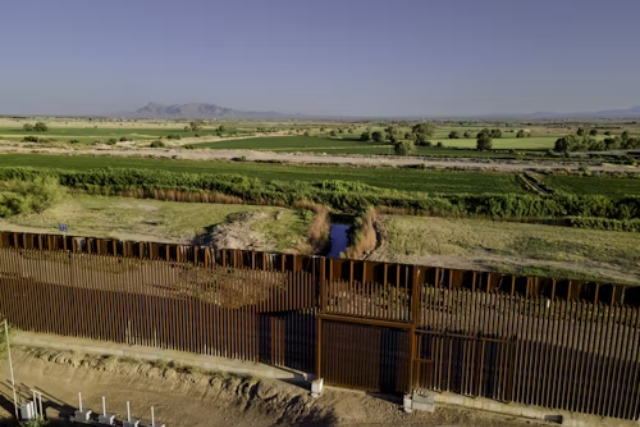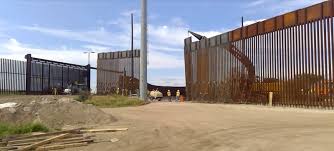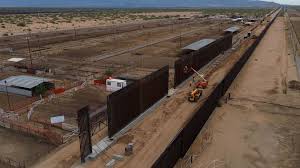
A legal showdown is unfolding in South Texas as a group of landowners challenges the federal government’s efforts to seize private property to continue construction of the U.S.–Mexico border wall. The Trump administration, which recently secured nearly $50 billion for the wall in a newly signed budget bill, is relying on the power of eminent domain to acquire land—whether owners agree or not.

Eminent domain gives the government the authority to take private land for public use, provided fair compensation is paid. However, legal experts say this definition has expanded over time.
“The property has to be taken for public use under the Fifth Amendment, but effectively, because of the Supreme Court decisions, public use has been determined to be public purpose,” said Charles Cummings, an eminent domain attorney. “It would be a public use to build the wall or a public purpose either way. So, then the issue becomes just compensation.”
Despite earlier promises that Mexico would fund the border wall, U.S. taxpayers are now footing a $46 billion share of the construction costs.
Many landowners are pushing back with the help of legal counsel—not necessarily to stop the wall altogether, but to fight for better compensation or delay the process long enough to shift political momentum.
“There’s two issues in eminent domain, two main issues, as far as compensation,” Cummings explained. “One is the value of the property they’re taking, and the second is any damages cost to the remainder of the property.”
The government, however, has tools at its disposal to expedite the process. One is a legal mechanism called “quick take,” which allows the federal government to gain possession of the land before final compensation is settled.

“There’s what they call prejudgment possession laws that allow the government to get possession of the property before they paid the full amount that a jury would be determining,” Cummings said.
“With Trump, he can just tell the Justice Department to do ABC and they pretty much do what he says,” he added. “So, you know, I would imagine that they could get it pretty damn quick.”
Still, delaying tactics could work in the landowners’ favor, especially as political tides shift.
“The first thing that you can expect landowners to do is to say, ‘okay, let’s tap the brakes,’” said Charles McFarland, a condemnation attorney. “You don’t have quick take and so we have to come to either agreement or a final determination of compensation before you can get a judgment or otherwise right of possession through the condemnation statute to build your project. That’s a significant delay.”
“You don’t want to minimize the impact of delaying this,” McFarland added. “This was all teed up during the first Trump administration and the delay followed by his failure to get reelected in the Biden administration, essentially neglected or didn’t make the border wall project a priority…so delay is what has prevented this project from going forward to date.”
Even among Trump’s supporters, resistance is growing when private land ownership is at stake.
“People are going to fight this,” said McFarland. “Even people who would otherwise identify as Trump supporters or conservatives, when it comes to their property, there’s going to be a fight.”
Environmental groups are also adding pressure. Active lawsuits in Texas, Arizona, and New Mexico seek to halt border wall construction through protected lands and sensitive ecological zones.
“It is an ecologically sensitive part of the world,” McFarland said. “There’s another group of people that feel very strongly that at least for large stretches of the proposed project where there are no significant, or even maybe physically possible crossings, are not a danger, not a risk, that the public use could be a factual matter, less supported than other areas where crossings might be more prevalent.”
Adding another wrinkle to the saga, Texas Governor Greg Abbott recently abandoned the state’s own border wall project, instead offering to lease or sell land to the federal government for their use—another move likely to spark more local backlash.
Originally reported by Dan levin in SAN.